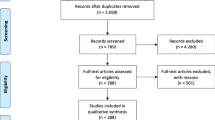Abstract
In this essay, we demonstrate that the field of computer ethics shares many core similarities with two other areas of applied ethics, Academicians writing and teaching in the area of computer ethics, along with practitioners, must address ethical issues that are qualitatively similar in nature to those raised in medicine and business. In addition, as academic disciplines, these three fields also share some similar concerns. For example, all face the difficult challenge of maintaining a credible dialogue with diverse constituents such as academicians of various disciplines, professionals, policymakers, and the general public, Given these similarities, the fields of bioethics and business ethics can serve as useful models for the development of computer ethics.
Similar content being viewed by others
References
Wicks, A. (1995) Albert Schweitzer or Ivan Boesky?: why we should reject the dichotomy between business and medicine. Journal of Business Ethics 14: 339–351.
Wicks, A. (1995) The business ethics movement: where are we headed and what can we learn from our colleagues in bioethics? Business Ethics Quarterly 5: 603–620.
Reinhardt, U. & Relman, A. (1986) An Exchange on For-Profit Health Care, in: Gray, B. (ed), For-Profit Enterprise in Health Care, National Academy Press, Washington DC.
Brock, D. & Buchanan, A. (1987) The profit motive in medicine. Journal of Medicine and Philosophy: 1–34.
Rodwin, M. (1992) Medicine, Money, and Morals, Oxford University Press, Oxford, UK.
Pellegrino, E. (1995) Interests, obligations, and justice: some notes towards an ethic of managed care. Journal of Clinical Ethics 6: 312–317.
Werhane, P. (1991) Adam Smith and His Legacy for Modern Capitalism, Oxford University Press, Oxfotd, UK.
Evan, W. & Freeman, E. (1988) A Stakeholder Theory of the Modern Corporation, in: Beauchamp, T. & Bowie, N. (eds), Ethical Theory in Business, third edition, Prentice-Hall, New York.
Donaldson, T. & Dunfee, T. (1994) Toward a unified conception of business ethies: integrative social contracts theory. Academy of Management Review 18, 252–284.
Bellah, R. et al. (1985) Habits of the Heart: Individualism and Commitment in American Life, Harper & Row, New York.
Parsi, K. et al. (1995) Does confidentiality have a future?: the computer-based patient record and managed mental health care. Trends in Health Care, Law and Ethics 10: 78–82.
Jecker, N. (1993) Genetic testing and the social responsibility of private health insurance companies. Journal of Law, Medicine & Ethics 21: 109–116.
Bowie, N. (1994) Enough already. Newsletter of the Society for Business Ethics 4: 3–4.
Stark, A. (1993) What’s the matter with business ethics? Harvard Business Review, 38–48.
Morreim, E. (1991) Balancing Act: The New Medical Ethics of Medicine’s New Economics, Kluwer Academic Publishers, Dordrecht, The Netherlands.
Furrow, B. (1995) Managed care and the evolution of quality. Trends in Health Care, Law and Ethics 10: 37–44.
Shaw, W. (1996) Business ethies today: a survey. Journal of Business Ethics 15, 489–500.
Bowie, N. (1991) New directions in corporate social responsibility, Business Horizons 34: 56–65.
Shepard, J. et al. (1995) The place of ethies in business. Business Ethics Quarterly 5: 577–602.
Paine, L. (1994) Managing for organizational integrity. Harvard Business Review, 106–117.
Coles, R. (1995) The disparity between intellect and character. The Chronicle of Higher Education, A68.
Collins, D. (ed) (1996) Theme issue on service learning. Journal of Business Ethics, 15.
Pellegrino, E., Thomasma, D. & Miller, D. (1996) The Christian Virtues in Medical Practice, Georgetown University Press, Washington DC.
Stackhouse, M., McCann, D., Roels, S. & Williams, P. (eds) (1995) On Moral Business: Classical and Contemporary Resources for Ethics in Economic Life, Eerdmans Publishing, Grand Rapids, USA.
Author information
Authors and Affiliations
Additional information
Kenman Wong, Ph.D., is an Associate Professor of Business Ethics; Gerhard Steinke, Ph.D., is Professor of Management and Information Systems. Both authors are at Seattle Pacific University's School of Business and Economics.
Rights and permissions
About this article
Cite this article
Wong, K. The development of computer ethics: Contributions from business ethics and medical ethics. SCI ENG ETHICS 6, 245–253 (2000). https://doi.org/10.1007/s11948-000-0052-9
Received:
Revised:
Accepted:
Issue Date:
DOI: https://doi.org/10.1007/s11948-000-0052-9




